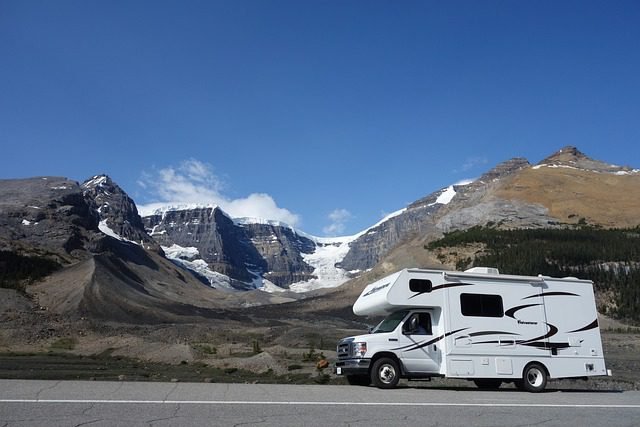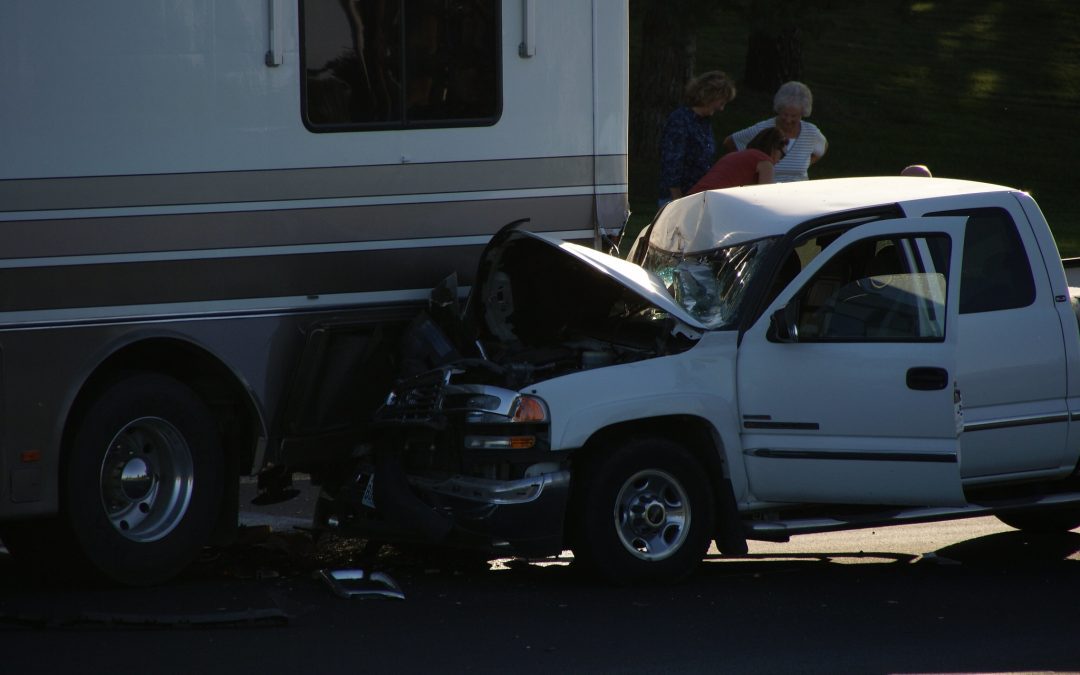A Comprehensive Guide to Coverage, Costs, and Selection
Owning an RV is a dream come true for many people. It offers the freedom to explore open roads and scenic landscapes. However, with this freedom comes the responsibility of ensuring that your mobile sanctuary is well-protected. RV insurance is not just a formality; it’s a safeguard for your cherished investment. While not a legal requirement in every state, it’s a crucial consideration for all RV owners, ensuring peace of mind during every journey.
This guide will provide you with a comprehensive overview of RV insurance, including the different types of coverage available, the costs involved, and how to select the right policy for your needs.
Here are some of the key topics that will be covered:
- The different types of RV insurance coverage
- The factors that affect the cost of RV insurance
- How to select the right RV insurance policy
- Tips for getting the best deal on RV insurance

How to Determine if You Need RV Insurance
The need for RV insurance varies from state to state. Some states require all RV owners to have insurance, while others only require insurance for RVs that are self-propelled or financed. To be sure, check your state’s insurance requirements.
In general, you should get liability insurance for your RV, regardless of whether it is required in your state. Liability insurance covers the cost of damage you cause to other people or property in an accident. The amount of liability insurance required is typically the same as what your state requires for cars.
In addition to liability insurance, you may also want to consider getting other types of RV insurance, such as:
- Comprehensive and collision insurance: This coverage protects your RV from damage caused by accidents, theft, vandalism, and other events.
- Medical payments insurance: This coverage pays for the medical expenses of people injured in an accident involving your RV, regardless of fault.
- Personal property insurance: This coverage covers the cost of your personal belongings that are damaged in an RV accident or fire.
- Roadside assistance: This coverage provides you with help if your RV breaks down or gets stuck. It can include things like towing, fuel delivery, and lockout service.
The specific types of RV insurance you need will depend on your individual circumstances and needs. It’s important to talk to an insurance agent to get the right coverage for your RV.
Here are some additional tips:
- The value of your RV: The more expensive your RV, the more you’ll need to protect it with insurance.
- How often you use your RV: If you only use it occasionally, you may be able to get away with a less comprehensive policy.
- Your driving record: If you have a good driving record, you may be eligible for discounts on your insurance.
- The age of your RV: Older RVs are more likely to need repairs, so you may need to get more comprehensive coverage.
- The type of RV you own: Different types of RVs require different types of insurance. For example, a motorhome will need different coverage than a travel trailer.
By taking the time to research your options, you can find the right RV insurance policy to protect your investment and peace of mind.
What RV Insurance Covers
RV insurance can cover a variety of things, depending on the type of policy you choose. Some of the most common coverages include:
- Liability insurance: This is the most basic type of RV insurance. It covers the cost of damage you cause to other people or property in an accident.
- Comprehensive and collision insurance: This coverage protects your RV from damage caused by accidents, theft, vandalism, and other events.
- Medical payments insurance: This coverage pays for the medical expenses of people injured in an accident involving your RV, regardless of fault.
- Personal property insurance: This coverage covers the cost of your personal belongings that are damaged in an RV accident or fire.
- Roadside assistance: This coverage provides you with help if your RV breaks down or gets stuck. It can include things like towing, fuel delivery, and lockout service.
- Diminished value insurance: This coverage pays for the decrease in value of your RV after it has been in an accident.
- Towing and storage: This coverage pays for the cost of towing your RV to a repair shop and storing it while it is being repaired.
- Extended warranty: This coverage extends the manufacturer’s warranty on your RV.
Additional Coverages
In addition to the basic coverages listed above, there are a few other coverages that you may want to consider for your RV insurance policy. These include:
- Total loss replacement: This coverage pays for the cost of a new RV if yours is totaled in an accident.
- Replacement cost for personal property: This coverage pays for the cost of replacing your personal belongings that are damaged or stolen in an RV accident or fire.
- Emergency expense coverage: This coverage pays for things like hotel stays, transportation, and food if your RV is unusable after an accident.
- Repair coverage: This coverage pays for the cost of repairing your RV if it is damaged by a covered cause, such as a fire, vandalism, or a falling tree.
- Full-timer liability coverage: This coverage provides you with more protection if you live in your RV full-time.
Talk to an Insurance Agent
The best way to determine what RV insurance coverage you need is to talk to an insurance agent. They can help you understand the different types of coverage available and recommend the right policy for your needs.
The factors that affect the cost of RV insurance
The amount you pay for your RV insurance varies based on a number of factors, including:
- The type of RV you drive: RVs of different types are subject to different risks, so the insurance cost will vary accordingly. For example, Class A motorhomes are larger and more expensive than Class B motorhomes, so they typically have higher insurance rates.
- How frequently you use it: If you only use your RV occasionally, your insurance rates will be lower than if you use it regularly. This is because the risk of an accident is lower if you don’t drive your RV as often.
- The possessions you store in it: If you store valuable possessions in your RV, such as jewelry or electronics, your insurance rates will be higher. This is because the risk of theft or damage is higher if you have valuable items in your RV.
- Your state: The insurance laws in different states vary, so the cost of RV insurance will also vary. For example, states with higher rates of RV theft typically have higher insurance rates.
- Your driving record and experience: If you have a good driving record and experience, your insurance rates will be lower. This is because you are considered to be a lower risk driver.
- Other factors: Other factors that can affect the cost of RV insurance include your age, the age of your RV, and your credit score.
Average RV insurance rates by type
The following are average RV insurance rates by type, according to NADA Guides:
- Class A motorhome: $1,000–$1,300 for 140 annual usage days
- Class B motorhome: Comparable to auto insurance rates in your area
- Class C motorhome: $800–$1,000+
- Travel trailer: $200–$1,000
It is important to note that these are just average rates and your actual rate may vary. The best way to get an accurate quote is to talk to an insurance agent.
How to select the right RV insurance policy
Here are some tips on how to select the right RV insurance policy:
- Understand your needs: The first step is to understand your needs and what type of coverage you need. This will depend on factors such as the type of RV you own, how often you use it, and the possessions you store in it.
- Get quotes from multiple insurers: Once you know what type of coverage you need, get quotes from multiple insurers. This will help you compare rates and find the best policy for your needs.
- Consider discounts: Many insurers offer discounts for things like good driving records, anti-theft devices, and RV safety courses. Be sure to ask about any discounts that you may qualify for.
- Read the policy carefully: Before you sign any policy, be sure to read it carefully and understand all the terms and conditions. This will help you avoid any surprises down the road.
- Review your policy annually: Your insurance needs may change over time, so it’s a good idea to review your policy annually. This will ensure that you have the right coverage for your current needs.
Here are some additional things to keep in mind when selecting an RV insurance policy:
- The cost of insurance: The cost of RV insurance will vary depending on the factors mentioned earlier. It’s important to get quotes from multiple insurers to find the best deal.
- The deductible: The deductible is the amount of money you will have to pay out of pocket before your insurance company will cover a claim. A higher deductible will typically result in lower premiums.
- The coverage limits: The coverage limits are the maximum amount of money that your insurance company will pay for a claim. It’s important to choose coverage limits that are high enough to protect your assets.
- The claims process: It’s important to understand the claims process before you need to file a claim. This will help you avoid any surprises.
By following these tips, you can select the right RV insurance policy to protect your investment and peace of mind.
Tips for getting the best deal on RV insurance
Here are some tips for getting the best deal on RV insurance:
- Shop around: Get quotes from multiple insurers before you buy a policy. This will help you compare rates and find the best deal.
- Consider discounts: Many insurers offer discounts for things like good driving records, anti-theft devices, and RV safety courses. Be sure to ask about any discounts that you may qualify for.
- Bundle your policies: If you have other insurance policies, such as homeowners insurance or auto insurance, you may be able to get a discount by bundling them together.
- Increase your deductible: A higher deductible will typically result in lower premiums. However, it’s important to make sure that you can afford to pay the deductible if you need to file a claim.
- Take a safety course: Some insurers offer discounts for RV owners who take an RV safety course. This is a good way to learn how to operate your RV safely and reduce your risk of an accident.
- Pay your premiums in full: Paying your premiums in full upfront can save you money on interest charges.
- Review your policy annually: Your insurance needs may change over time, so it’s a good idea to review your policy annually. This will ensure that you have the right coverage for your current needs.
Here are some additional things to keep in mind when getting the best deal on RV insurance:
- The type of RV you own: The type of RV you own will affect the cost of insurance. For example, Class A motorhomes are typically more expensive to insure than travel trailers.
- How often you use it: If you only use your RV occasionally, your insurance rates will be lower than if you use it regularly.
- The possessions you store in it: If you store valuable possessions in your RV, such as jewelry or electronics, your insurance rates will be higher.
- Your driving record and experience: If you have a good driving record and experience, your insurance rates will be lower.
- Your age: Older drivers typically pay higher insurance rates than younger drivers.
- Your credit score: A good credit score can help you qualify for lower insurance rates.
By following these tips, you can get the best deal on RV insurance and protect your investment and peace of mind.
Best RV insurance companies
To ensure you’re getting the best coverage at the lowest RV insurance cost possible, we recommend gathering quotes from at least a few insurance providers. Here are a handful of our favorites:
- Roamly RV Insurance: Roamly is an insurance provider created by RV owners, for RV owners. They offer tailored insurance products that reflect your actual RV usage, ensuring better coverage when you need it, and lower prices when you don’t. Roamly’s team of licensed agents are well-equipped to help you avoid common coverage gaps for your travel trailer, campervan, or RV. Plus, you could save up to 35% on your RV insurance with Roamly. Get a free quote in just 60 seconds.
- Progressive RV insurance: Want affordable coverage? Check with Progressive. Thanks to its extensive discounts, the basic liability policies start at as low as $125 a year.
- Good Sam RV Insurance: This company specializes in RV insurance, working with Progressive, National General, Safeco and Foremost to offer affordable policies. Good Sam can also insure your RV in Mexico.
- Geico RV insurance: Geico offers a broad range of coverage for both motorized RVs and travel trailers.
- The Hartford RV insurance: The Hartford partners with AARP for its auto and RV insurance. If you’re an AARP member, your membership can score you discounts on your recreational vehicle coverage.
- National General RV Insurance: National General pairs good customer reviews with broad-spectrum coverage and plenty of discount options.
Too long, didn’t read?
RV insurance varies based on the type of RV you drive, your state requirements and a host of other factors. Regardless, if you drive a recreational vehicle, it’s worth asking an insurance agent about the right level of coverage for your vehicle. That way, you can enjoy the freedom it offers without the stress of unanticipated expenses if the road ahead takes an unexpected turn.
We may earn a commission if you click a link on this page and make a purchase, at no additional cost to you. We only recommend products or services that we believe in and that we think would be of value to you.
Featured Image Credit: RVWithTito.com/ flickr

